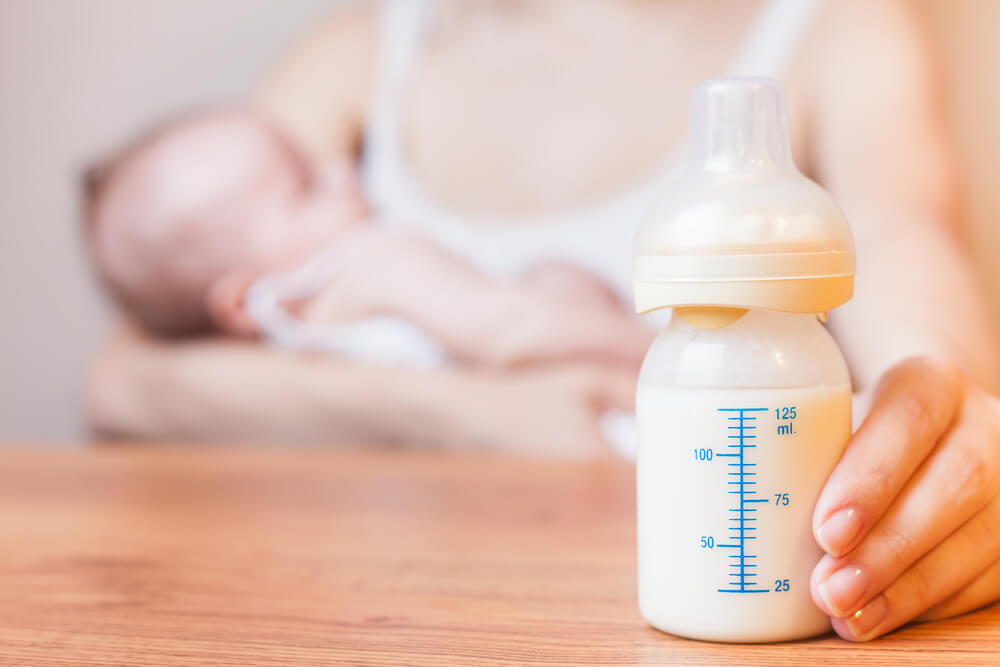
Questions Every Mother Has About Their Baby’S Milk Needs Answered
18 May 2022 | 3 min Read
Tinystep
Author | 2574 Articles
A mother to be or a new mother has literally got a million things to learn about their newborn, like how to hold, feed, and bathe them! The importance of the early years of your child’s life can’t be stressed enough. They play a key role in their rate of growth and development, and their physical and mental health.
1. Till what age should my baby be fed exclusively with breast milk?
Mothers are generally advised to exclusively breastfeed their toddler for the first six months. After six months of age your baby’s nutritional requirements (especially for iron) increases, and could often be different from one child to the other. After this point, milk is not sufficient enough and you can slowly start introducing baby food.
2. How often should I breastfeed my baby?
Your baby will ask for food about 8 times, that is every one and a half hours to two hours a day, after the first few days of their birth. The more your baby feeds, the more milk you will produce, so don’t fear running out of it!
3. Are there any substitutes for breast milk?
Yes! Baby formula is a substitute for breast milk. It is fed to babies under 12 months of age. It is seen as a complete, sometimes partial substitute for human milk. There is a wide variety of baby formula available in pharmacies and you should pick one that is most suited to the needs of your baby, under the guidance of the pediatrician of course.
4. How much formula should I feed my baby?
For a baby who hasn’t begun consuming solids yet and is still in the 4-6-month age group, the baby is supposed to be given not more than 2.5 ounces of formula per pound of the baby’s weight in a 24-hour period.
5. Can I give cow’s milk to my baby?
Babies can’t completely or easily digest cow’s milk, as they can with breast milk. Also, cow milk’s concentration of all important nutrients, such as iron, vitamin C, etc., is all wrong and can strain and even harm your baby’s immature kidneys. Cow’s milk is anyway not as nutrient rich or compatible for an infant, as mother’s milk is.
6. When can cow’s milk be introduced to my baby’s diet?
You should wait for at least 12 months before introducing cow’s milk to your baby’s diet. This applies to all dairy/whole milk. Consuming cow’s milk before one year of age can put your child at the risk of getting iron deficient anemia as milk doesn’t allow the proper absorption of iron. Also, by one year of age, your baby’s kidneys are more developed and will be able to digest cow’s milk.
7. Can babies be given skim milk? If yes, then when?
As suggested by pediatricians, babies shouldn’t be given skim milk, or low-fat milk before the age of 2 years as they need all the fat for good brain development.
8. What are the other type of milk that can be given to babies?
After 12 months of age there are many different types of milk that you can give to your baby! Goat’s milk, which is similar to cow’s milk in composition can be given to babies after 12 months of age. Soy milk with added calcium can be given to your baby, as soy products don’t naturally contain calcium. Almond milk can be given to babies, but make sure that you choose a brand with less sugar and more calcium.
A


Suggestions offered by doctors on BabyChakra are of advisory nature i.e., for educational and informational purposes only. Content posted on, created for, or compiled by BabyChakra is not intended or designed to replace your doctor's independent judgment about any symptom, condition, or the appropriateness or risks of a procedure or treatment for a given person.
